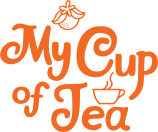
Won't You Be My Neighbor
Last month many Memphians experienced power insecurity as rarely seen before when the power grid was down for days. The delays in restoring the power frustrated all who were waiting, as well as those who were feverishly at work in record heat indexes to recover it.
Hot heads committed felonious acts, and a sense of desperation dogged the “dog days of summer.” When an entire block is down, there is no impetus to be neighborly.

Most of us don’t know our neighbors anyway. A recent poll states only 26% of Americans have said they really know their neighbors. Professor of Sociology, Rebecca Adams has noted “There are a few key conditions necessary for developing neighborly friendship. Included are: proximity, repeated unplanned interactions, and a setting that encourages people to let their guard down.”
Perhaps the lack of sidewalks and front porches and commercial businesses within their neighborhood have kept most Memphians merely waving and rarely talking to a bystander. We drive by unsociable.
Sidewalks, commerce, and front porches abound in Orange Mound. Nevertheless, doors stay locked to a knock, and no one is rocking on the veranda. Creditors and predators make house calls here and hospitality is a lost art to caution and defense.
The NIV translation of the Bible says “Love your neighbor” 508 times. Obeying that charge is our mission at The House, and we are gaining on it.
At My Cup of Tea our employees are beloved neighbors, though none live on our block. Many were without power in July’s extended heat advisory. Normally hot

days lead to hot and angry reactions, but not so with our ladies. The patience in inconvenient times is unmistakable and the creativity they show is uncommon. Deborah instructed all to use wet towels as a light cover when trying to sleep. Many volunteers brought food and beverages. We who had power offered extra sleeping arrangements for those who had nailed shut windows and intentionally bolted doors. The House stayed open, and most were able to come and refresh as our utilities never stopped.
Vulnerable, yet never overcome, the ladies could have taught techniques and lessons to many Memphians who were stuck in the unlucky parts of town. There is always an exchange of tricks and tips among our women who work at the tea company.
In the 10 years we have been working with women in Orange Mound, our mission has always been to be present and trustworthy. The Kingdom advances only through relationships of love and availability. Befriending takes time and emotional energy. God calls us to entangle our lives in thick and thin, cold and hot, clean and dirty, darkness and light, easy and hard, and we do this very well.

Recently, each of the ladies selected a Volunteer/Sister from one of the dozens who come here to be her personal mentor. Authentic friendships have superseded the initial awkward attempts to be more than an acquaintance. Our volunteers have been unwavering in their commitment to know the ladies without judgement or patronym.
All the coupled ladies are meeting once a week to share the common threads that occupy our prayers and needs and hopes. I am convinced there is no obligation among any, for there is an air of excitement. Several have gone out to dinner together, and two had a date to the movies.
Some are sharing Bible study, and some are working shoulder to shoulder in the tasks for the day. Neighborly love is swarming around us, and our rocking chairs are slapping in rhythm on the porch.













